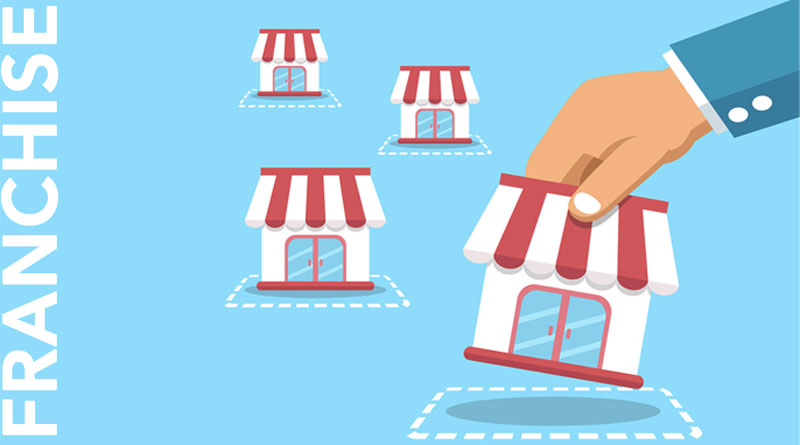A basic guide to entering the franchises system
By: Diana Bello Aristizábal
DORAL, FL – The franchise system is growing increasingly strong in the United States. For this reason, many people have decided to choose this business model that is creating a positive impact on the economy by being the source of 21.0 million jobs, $ 660.9 billion of payroll, and $ 2.31 trillion of output.
If you plan to start 2020 by becoming a franchisee, that is, an entrepreneur who operates under the umbrella of an already established brand name and has limited power by a contractual agreement with a franchisor, take a look at the following tips that will help you put your plan in motion.
First, you should know that franchised businesses are very appealing, as confirmed by statistics. According to Florida SBDC (Small Business Development Center) of FIU, in 2015, there were 909,253 franchise system businesses in the United States, which represents 3.3 percent of all commercial establishments in the country.
And why is this business so appealing? According to George Ray III, a business consultant at Florida SBDC, franchising “reduces risk exposure, is proven to be profitable because of the brand name and follows a standardized process that reduces errors.” These were his words in the seminar ‘Franchising: What You Need to Know’ that took place in Doral.
“One of the main challenges that entrepreneurs face today is not having a clear and proven concept. With the franchise system, we eliminate the game of guessing how to operate a business, ”says George Ray III.
This translates into products and services that are presented to the public with the same level of quality and features. For example, if you own a McDonald’s franchise, customers who order a certain type of burger receive the same product regardless of where they buy it (point of sale).
On the other hand, franchisees get training, financial assistance, and a support system that is very important for those who lack experience as entrepreneurs. “This can make a difference between succeeding or not,” says the expert.
About this, experts agree that it is a good idea talking to the franchisor to understand what the support system really looks like, as most will say they offer support in marketing, real estate, and operations. However, it is important to know what resources will be provided and who will be in charge of providing such support.
But this system also has its limitations that should be accounted by the franchise. To start, there are several associated costs besides the franchise cost. These are the initial franchise fee, investment costs, royalty payments, and advertising expenses.
In addition, there is little space for independence, contrary to what happens when opening a brand new business. “It’s about following the rules, knowing the differentiating value of the brand and maintain it,” says George Ray III.
On the other hand, some franchises have restrictions with respect to the sales territory, the goods or services that can be sold, require specific operating hours, and control advertising.
Opportunities and risks
Besides knowing the advantages and disadvantages of franchise systems, it is important to analyze the market opportunities available to select the option that matches up with the franchisee’s needs and aspirations.
This means studying potential franchises through different sources of information such as the Federal Trade Commission, Internet, franchise consultants, and even franchisors themselves.

“For example, if you are interested in owning a restaurant franchise, go to the restaurant, talk to some employees and make a personal observation of the business,” advises George Ray III.
Matthew Stanton, Chief Development Officer of WellBiz Brands, Inc., and manager of franchise brands such as Amazing Lash Studio and Fitness Together, talks about this in his article ‘5 factors franchisees must know before signing on the dotted line’.
For the expert, the best way to understand what the intricacies of a franchise are that drive success is to talk with other franchise owners in the brand’s system. You have to know “what are the key performance indicators (KPI’s) that identify and help you understand the business and what drives success forward,” says Stanton.
For example, in a restaurant, it is crucial to understand how to efficiently run the kitchen to providing a proper speed of service that is critical to customer retention.
“As a franchisee, you should know what those success drivers are so you can know if it matches up with your skill set,” Stanton explains.
Other factors to consider are the demand and reputation of the brand, its geography, relationship with its franchisees, marketing strategies, competitors, growth possibilities, and the risks of the industry.
Also, you should assess your personal risk by asking yourself questions such as: how much total investment will this franchise require? How much will be needed in operating capital reserves to cover losses after opening the franchise until it reaches the breakeven point?, How much would you have in profits? And what legal considerations should be accounted? among others.
In an exclusive interview, George Ray III explained that 70 percent of all businesses fail in their first five years, which is why it is necessary to be properly capitalized.
Due to the high risk that this implies, the expert recommends choosing a franchise in which the franchisee believes and also hiring the services of a franchise consultant to ensure that all steps of the process are being followed. Lastly, it is ideal to find a lawyer who can break down the legal implications of the business and prepares the franchise disclosure document (FDD).

